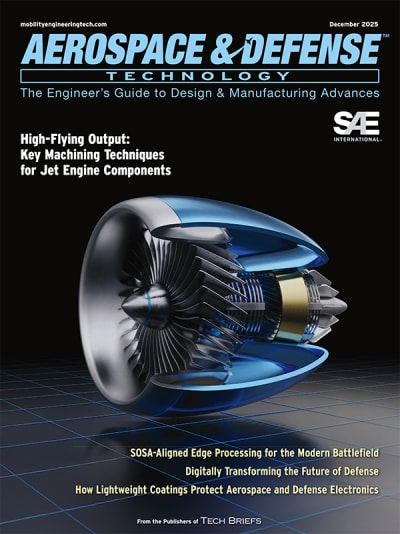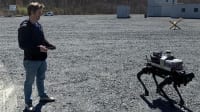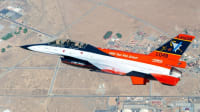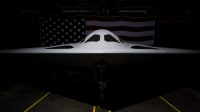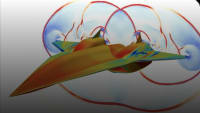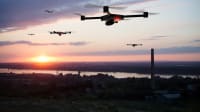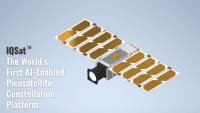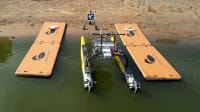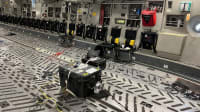Skunk Works Successfully Demonstrates AI in Air-To-Air Tactical Intercepts

Lockheed Martin Skunk Works partnered with the University of Iowa's Operator Performance Laboratory (OPL) to demonstrate the use of artificial intelligence (AI) in air-to-air intercept scenarios.
The successful flights are a significant milestone for Skunk Works' Tactical AI team, in which AI directly flew and conducted tactical exercises with a full-scale, live aircraft – one of OPL's L-29 Delfin jets – using heading, speed and altitude commands. The team executed simulated-to-real transfer test objectives against a virtual adversary in offensive and defensive risk postures.
Eight test cases were conducted per flight to exercise the AI agent in a variety of situations, from standard head-to-head fights to off-aspect encounters, missile support and missile defeat scenarios. The team was encouraged to see clean sim-to-real transfer of learned behaviors and that the AI agent appeared intentional and decisive in its actions.
"This was the first live exercise of the new flight interface; it's thrilling to see the separate components successfully integrate on the L-29 to demonstrate new capabilities. The complete system performed even better in live flight than in simulation," said Dr. Tom "Mach" Schnell, OPL Professor at Iowa Technology Institute.
"Live flight tests are a crucial aspect of advancing our expertise in AI and autonomy. These flights are powerful demonstrations of our ability to quickly and affordably develop and test operationally relevant AI capabilities," said Matthew "Gabe" Beard, Lockheed Martin Skunk Works Autonomy/AI and Machine Learning Engineering Manager.
These flight tests are part of a broader initiative to rapidly develop and test AI-driven autonomy for air-to-air missions. Several other flight tests are planned for this year, building on these achievements, and increasing the complexity by introducing additional aircraft into offensive counter air and battle management scenarios. Lockheed Martin is continuously elevating AI mission performance in operationally representative simulated environments, using open mission systems standards to ensure broad compatibility and rapid transition with future platforms.
Lockheed Martin provides AI and machine learning solutions that augment human performance by processing, fusing, and analyzing tremendous volumes of data to give our customers actionable intelligence and a strategic advantage. Lockheed Martin is aligned and closely adheres to the U.S. Department of Defense's guidance on the ethical and safe use of autonomous systems. Humans are and will remain on-the-loop, providing final decision-making authority in Lockheed Martin AI and machine learning systems.
Top Stories
INSIDERRF & Microwave Electronics
![]() FAA to Replace Aging Network of Ground-Based Radars
FAA to Replace Aging Network of Ground-Based Radars
PodcastsDefense
![]() A New Additive Manufacturing Accelerator for the U.S. Navy in Guam
A New Additive Manufacturing Accelerator for the U.S. Navy in Guam
NewsSoftware
![]() Rewriting the Engineer’s Playbook: What OEMs Must Do to Spin the AI Flywheel
Rewriting the Engineer’s Playbook: What OEMs Must Do to Spin the AI Flywheel
Road ReadyPower
![]() 2026 Toyota RAV4 Review: All Hybrid, All the Time
2026 Toyota RAV4 Review: All Hybrid, All the Time
INSIDERDefense
![]() F-22 Pilot Controls Drone With Tablet
F-22 Pilot Controls Drone With Tablet
INSIDERRF & Microwave Electronics
![]() L3Harris Starts Low Rate Production Of New F-16 Viper Shield
L3Harris Starts Low Rate Production Of New F-16 Viper Shield
Webcasts
Energy
![]() Hydrogen Engines Are Heating Up for Heavy Duty
Hydrogen Engines Are Heating Up for Heavy Duty
Energy
![]() SAE Automotive Podcast: Solid-State Batteries
SAE Automotive Podcast: Solid-State Batteries
Power
![]() SAE Automotive Engineering Podcast: Additive Manufacturing
SAE Automotive Engineering Podcast: Additive Manufacturing
Aerospace
![]() A New Approach to Manufacturing Machine Connectivity for the Air Force
A New Approach to Manufacturing Machine Connectivity for the Air Force
Software
![]() Optimizing Production Processes with the Virtual Twin
Optimizing Production Processes with the Virtual Twin

